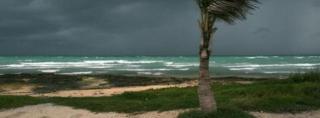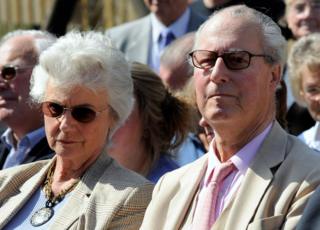Labour has said David Cameron’s admission that he owned shares in an offshore fund set up by his late father has undermined public trust in him.
On Thursday, the PM said he sold the shares before he entered Number 10 in 2010 and had paid all UK taxes due on profits from the 30,000 sale.
He said the firm, Blairmore Holdings, had not been set up to avoid tax.
But Labour leader Jeremy Corbyn said the PM had “misled the public” and “lost the trust of the British people”.
He said Mr Cameron’s actions had showed there was “one rule for the wealthy and another for the rest of us”.
“After years of calling for tax transparency and attacking complex offshore tax arrangements as ‘morally wrong’, the prime minister has been shown to have personally benefited from exactly such a secretive offshore investment,” he said.
Mr Corbyn said the PM must give a “full account of all his private financial dealings and make a statement to Parliament next week”.
He also accused the government of “connivance with tax havens and refusal to take serious action against tax avoidance and evasion”, leading “directly” to public spending cuts.
Labour backbencher John Mann has called on the Commons Standards Commissioner to look into why Mr Cameron’s stake in Blairmore was not disclosed in the register of MPs’ financial interests.
Conservative MPs have defended Mr Cameron while Downing Street – whose handling of the issue has been criticised – has insisted the prime minister’s financial interests have “always been recorded in line with the rules as they stood at the time”.
There have been days of headlines about Blairmore Holdings – a fund for investors which until 2006 used “bearer shares” to protect its clients’ privacy – following the leak of 11 million documents held by Panama-based law firm Mossack Fonseca.
What’s the deal with offshore investment funds?
 Image copyright AP
Image copyright AP Thousands of similar funds, or companies, have been set up for various reasons although, ultimately of course, their aim is to make money.
Those on one side of the argument will argue that these funds exist, and are based offshore, primarily owing to the opportunity to escape paying certain taxes.
The opposing argument is that this decision is purely based on rational business grounds, by finding a way to attract investors from around the world and for the fund to perform to its peak.
They show that Mr Cameron’s father, Ian, was one of five UK directors who flew to board meetings in the Bahamas or Switzerland.
Downing Street and Mr Cameron had issued four statements on whether Mr Cameron had any financial involvement with Blairmore Holdings before the PM told ITV News on Thursday about the shares he had owned.
Labour’s deputy leader Tom Watson said Mr Cameron could not be blamed for his father’s actions but had not been “entirely straight with the British people about what his own financial arrangements were”.
“That wouldn’t be so bad if he hadn’t also been lecturing very prominent people about their own tax arrangements, some he called morally wrong for being invested in similar schemes,” he said.
What Cameron said when
- Asked on Monday whether she could confirm that no family money was still invested in the fund, Mr Cameron’s spokeswoman said: “That is a private matter”
- Then in an interview on Tuesday, Mr Cameron said: ” I have no shares, no offshore trusts, no offshore funds, nothing like that. And, so that, I think, is a very clear description”
- Downing Street issued a statement later that day: “To be clear, the prime minister, his wife and their children do not benefit from any offshore funds. The prime minister owns no shares. As has been previously reported, Mrs Cameron owns a small number of shares connected to her father’s land, which she declares on her tax return”
- No 10 then released a further clarifying statement on Wednesday, saying: “There are no offshore funds/trusts which the prime minister, Mrs Cameron or their children will benefit from in future”
- On Thursday the PM told ITV News: “We owned 5,000 units in Blairmore Investment Trust, which we sold in January 2010”
While stopping short of calling for the PM to quit, shadow chancellor John McDonnell said it was regrettable the information had had to be “dragged” out of him.
“You need to be able to trust your prime minister and the fact that he couldn’t answer a straight question, straightforwardly, straight away I think has undermined the trust that we have in him,” he said.
SNP leader Nicola Sturgeon said the prime minister had “big questions to answer” while Lib Dem leader Tim Farron said his behaviour illustrated a government that was intent on supporting a “small proportion of the establishment not acting in the national interest”.
 Image copyright Getty Images
Image copyright Getty Images But James Quarmby, a specialist in tax planning and wealth structuring at law firm Stephenson Harwood, told BBC Radio 4’s Today programme there was a “massive misunderstanding” about what Mr Cameron had invested in.
He said it was a hedge fund that was “about as boring as it gets for investments”, adding that it would not be used for avoiding tax.
“It’s no different from Mr Cameron investing in a UK stock,” he said.
Analysis by political correspondent Eleanor Garnier
Even David Cameron himself has admitted it has been a pretty difficult week.
Downing Street has been thrown on the defensive, forced to ride out damning headlines that have dogged the prime minister day after day. There have been accusations Mr Cameron has “played the public” on his tax affairs and that he has lost the electorate’s trust.
Remember, he is currently in the middle of the political fight of his life, battling to keep Britain in the European Union. He’s trying to persuade voters to believe his arguments, trying to win over their trust in the referendum debate. So, the timing isn’t good. Anything like this that highlights the distance between him and voters will not help.
The problem for the prime minister is political image. He hasn’t done anything illegal but it is perception that matters.
Analysis: A problem of perception
Foreign Secretary Philip Hammond said the prime minister had “acted quite properly” and done everything that could be expected of him.
Speaking on Any Questions on BBC Radio 4, Defence Secretary Michael Fallon said Mr Cameron had done nothing “at all improper” and had “the fuller questions… been asked of him earlier in the week then it might all have been neater”.
Conservative Bernard Jenkin, chairman of the Public Administration Select Committee, said Number 10 had clearly “mishandled” the issue.
“I don’t know who’s been advising… but it clearly would have been much better if a much cleaner breast of all the facts had been made right at the outset,” he told Radio 4’s World at One.
Business Minister Nick Boles said “with the benefit of hindsight” it might have been better if the PM had revealed details of his shareholdings when the allegations first surfaced on Monday but he understood Mr Cameron’s “natural human instinct to rally round his father”.
‘Nothing to hide’
In his interview on Thursday, Mr Cameron told ITV News: “I don’t have anything to hide. I’m proud of my dad and what he did and the business he established… I can’t bear to see his name being dragged through the mud.”
Mr Cameron said much criticism was based on a “fundamental misconception” that Blairmore was set up to avoid tax.
“It wasn’t. It was set up after exchange controls went, so that people who wanted to invest in dollar denominated shares and companies could do so, and there are many other, thousands of other unit trusts set up in this way,” he said.
Downing Street said Mr and Mrs Cameron bought their holding in April 1997 for 12,497 and sold it in January 2010 for 31,500. That year the personal allowance before capital gains tax was paid was 10,100 per person.
The rules on members’ interests state MPs must declare a company shareholding if it exceeds 15% of total shares issued or is worth more than 70,000. Holdings in collective investment vehicles such as unit trusts and investment companies with variable capital do not need to be registered.
